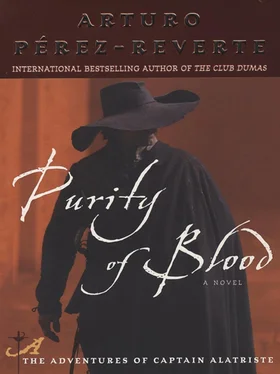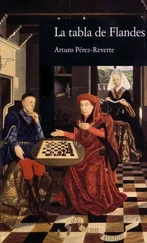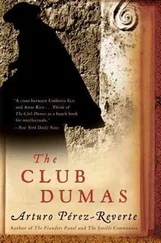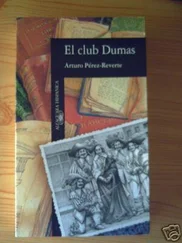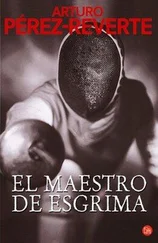Arturo Pérez-Reverte - Purity of Blood
Здесь есть возможность читать онлайн «Arturo Pérez-Reverte - Purity of Blood» весь текст электронной книги совершенно бесплатно (целиком полную версию без сокращений). В некоторых случаях можно слушать аудио, скачать через торрент в формате fb2 и присутствует краткое содержание. Жанр: Старинная литература, на английском языке. Описание произведения, (предисловие) а так же отзывы посетителей доступны на портале библиотеки ЛибКат.
- Название:Purity of Blood
- Автор:
- Жанр:
- Год:неизвестен
- ISBN:нет данных
- Рейтинг книги:3 / 5. Голосов: 1
-
Избранное:Добавить в избранное
- Отзывы:
-
Ваша оценка:
- 60
- 1
- 2
- 3
- 4
- 5
Purity of Blood: краткое содержание, описание и аннотация
Предлагаем к чтению аннотацию, описание, краткое содержание или предисловие (зависит от того, что написал сам автор книги «Purity of Blood»). Если вы не нашли необходимую информацию о книге — напишите в комментариях, мы постараемся отыскать её.
Purity of Blood — читать онлайн бесплатно полную книгу (весь текст) целиком
Ниже представлен текст книги, разбитый по страницам. Система сохранения места последней прочитанной страницы, позволяет с удобством читать онлайн бесплатно книгу «Purity of Blood», без необходимости каждый раз заново искать на чём Вы остановились. Поставьте закладку, и сможете в любой момент перейти на страницу, на которой закончили чтение.
Интервал:
Закладка:
“I have no need for you to tell me anything.” Alatriste shrugged. “It is all very clear: the trap at the convent, Luis de Alquézar, the Inquisition. Everything.”
“The Devil. You have simply come to kill me, then.”
“That is so.”
Malatesta studied the situation. He did not seem to find it promising.
“And the fact that I have nothing new to tell you,” he concluded, “only shortens my life.”
“More or less.” Now it was the captain who flashed a hard, dangerous smile. “Although I shall do you the honor of assuming that you are not a man to spill your guts,” he said, with some irony.
Malatesta sighed, shifting painfully as he felt his bandages.
“Very chivalrous on your part.” Resigned, he pointed to the sword at the head of his bed. “A pity that I am not well enough to return your courtesy and save you having to kill me in my bed like a dog. But you trimmed my candle quite thoroughly the other day in that accursed alley.”
He moved again, attempting to find a more comfortable position. At that moment he did not seem to hold more rancor than was required by their profession. But his dark, feverish eyes were alert, watching Alatriste.
“You truly did…I hear that the boy’s skin was saved. Is that true?”
“It is.”
The assassin’s smile widened.
“That pleases me, by God. He is a brave lad. You should have seen him that night at the convent, trying to hold me at bay with a dagger. Hang me if I enjoyed taking him to Toledo, and less, knowing what awaited him. But you know how it goes. He who pays, commands.”
His smile had become mocking. Once or twice he looked out of the corner of his eye at his pistol, lying on the sheets. The captain had no doubt that he would use it if the opportunity arose.
“You,” said Alatriste, “are a whoreson and a viper.”
Malatesta looked at him with what seemed to be sincere surprise.
“ Pardiez, Captain Alatriste. Anyone who heard you would take you for a Clarist nun.”
Silence. Keeping his finger on the trigger of the pistol, the captain took a long look around. Gualterio Malatesta’s lodgings reminded him too much of his own for him to be totally indifferent. And in a certain way, the Italian was right. They were not all that far apart.
“Is it true that you cannot move out of that bed?”
“By my faith, no.” Malatesta was now looking at him with renewed attention. “What is it? Are you looking for an excuse?” Again the white, cruel smile grew wider. “If it helps, I can tell you of the men I have dispatched posthaste, without giving them time for a ‘God help me.’ Awake, asleep, from the front, from the back—and more of the second than the first. So don’t come to me now with a crisis of conscience.” The smile gave way to a quiet little laugh, discordant, evil. “You and I are professionals.”
Alatriste looked at his enemy’s sword. The guard had as many nicks and dents as his own. Everything comes down to how the dice fall, he told himself.
“I would be grateful,” Alatriste suggested, “if you would try to grab the pistol, or that sword.”
Malatesta stared at him, hard, before slowly shaking his head no.
“Not a chance. I may lie here filleted, but I am no coward. If you want to kill me, press that trigger and it will be over. With luck, I will reach hell in time for dinner.”
“I do not like the role of executioner.”
“Then shove it up your ass. I am too weak to argue.”
He lay his head back on the pillow and closed his eyes, whistling his ti-ri-tu, ta-ta, as if the matter had been settled. Alatriste stood with his pistol in hand, as through the window came the distant tolling of church bells.
Finally, Malatesta stopped whistling. He ran his hand over his swollen eyebrows, then across his pocked and scarred face, and again looked at the captain.
“Well? What have you decided?”
Alatriste did not answer. The situation verged on the grotesque. Not even Lope would have dared put such a scene in a play, for fear that the cobbler Tabarca’s mosqueteros —those toughest critics—would stomp their feet in disapproval. He walked a little closer to the bed, studying his enemy’s wounds. They stank, and looked very bad.
“Oh, but make no mistake,” said Malatesta, believing he knew what Alatriste was thinking. “I will come out of this. We men from Palermo are tough. So just get it over with.”
Diego Alatriste wanted to dispatch the dangerous swine, who had been such a menace in his life and that of his friends. Leaving him alive was as suicidal as keeping a venomous serpent in the room where he planned to sleep. He wanted and he needed to kill Gualterio Malatesta. Not this way, however, but with steel in their hands, face to face, hearing the gasping and grunts of the fight, and the death rattle at the end.
Thinking it over, he reflected that there was really no hurry. After all, however much the Italian insisted, the two of them were not the same. Perhaps they were in God’s eyes, or the Devil’s, or man’s, but not deep inside, not in their consciences. They were equals in everything except the way they read the dice on the table. Equals, except that if the roles were reversed, Malatesta would have killed Diego Alatriste long before this, while the captain stood there with his sword sheathed, the finger on the trigger of his pistol indecisive.
The door opened, and a woman appeared on the threshold. She was still young, dressed in a blouse and dirty gray petticoats. She was carrying a basket of clean sheets and a demijohn of wine, and when she saw an intruder there she choked back a scream, sending a frightened look to Malatesta. The demijohn fell to the floor, bursting inside the woven wicker covering. She was too frightened to move or speak, and anguish filled her eyes. With one glance, Diego Alatriste knew that her fear was not for herself but for the fate of the badly wounded man on the bed. After all, the captain thought, ridiculing himself as he did, even serpents seek companionship.
He looked the woman over, taking his time. She was a spindly thing, common looking. Her youth was wearing thin, and only a certain class of life could have imposed the circles of fatigue beneath her eyes. Pardiez. She reminded him a little of Caridad la Lebrijana.
The captain looked at the broken demijohn, at the wine spreading like blood across the floor tiles. Then he bowed his head, carefully released the hammer of the pistol, and placed it in his belt. He did everything very slowly, as if he feared he might forget something, or as if he were thinking of something else. And then, without a word or a backward glance, he moved the woman gently aside and left the room stinking of loneliness and defeat. A room too like his own, like all the places he had known throughout a lifetime.
As soon as he was out on the gallery, he began to laugh, and he kept laughing as he went down the stairs to the street, fastening his cape. He laughed as Malatesta had laughed once near the royal castle, in the rain, when he came to tell me good-bye after the adventure of the two Englishmen.
His laugh, like the Italian’s, echoed long after he had gone.
EPILOGUE
It seems that war is flaring up again in Flanders, and that most of the officers and soldiers in Madrid have decided to leave and join their tercios, seeing what little action there is here and what opportunity there is there for booty and benefits. It has been four days since the Tercio Viejo de Cartagena left with its drums and banners. It was, as you, my reader, undoubtedly know, reformed after the loss of lives suffered two years ago that terrible day in Fleurus. Nearly the entire company are veteran soldiers, and great news is expected from the rebellious provinces.On a different subject, yesterday, Monday, the chaplain of Las Adoratrices Benitas, Padre Juan Coroado, was killed in a mysterious manner. This priest came from a well-known Portuguese family. He was young, handsome in his person and eloquent in the pulpit. It seems he was standing at the gate of his parish church when a young masked man approached and without speaking a word ran him through with one thrust. There are whispers of women, or vengeance. The killer has not been found.
Читать дальшеИнтервал:
Закладка:
Похожие книги на «Purity of Blood»
Представляем Вашему вниманию похожие книги на «Purity of Blood» списком для выбора. Мы отобрали схожую по названию и смыслу литературу в надежде предоставить читателям больше вариантов отыскать новые, интересные, ещё непрочитанные произведения.
Обсуждение, отзывы о книге «Purity of Blood» и просто собственные мнения читателей. Оставьте ваши комментарии, напишите, что Вы думаете о произведении, его смысле или главных героях. Укажите что конкретно понравилось, а что нет, и почему Вы так считаете.
